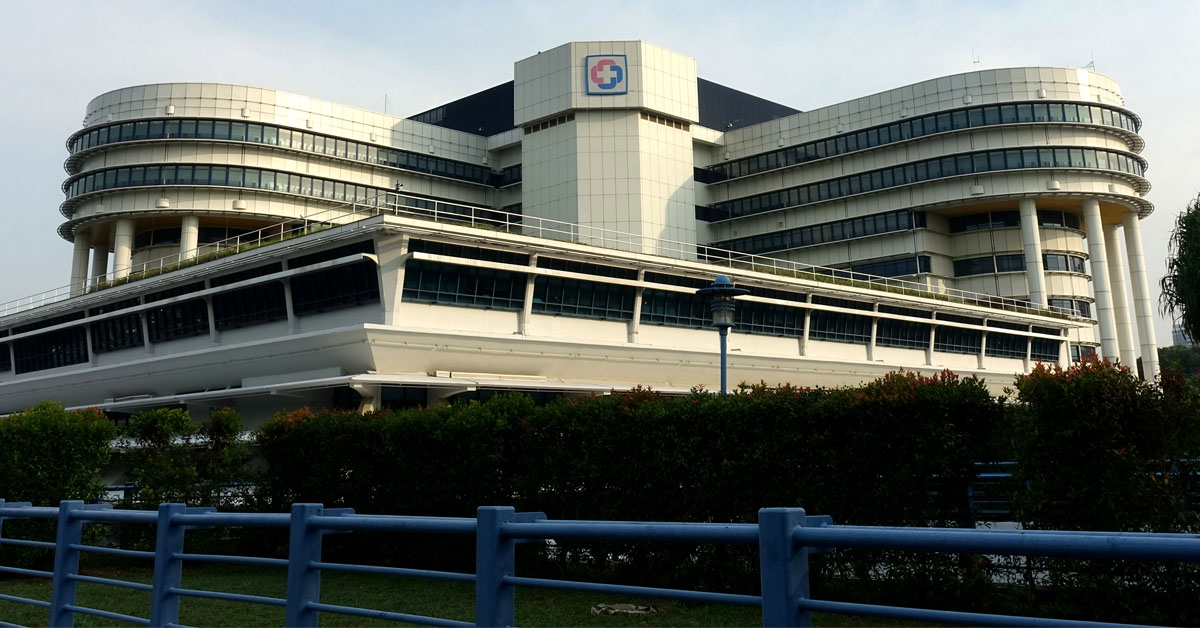On Monday (June 27), Singapore reported the first death of a COVID-19 patient below the age of 12.
In a news release, the Ministry of Health (MOH) stated that it was an 18-month-old Singaporean boy, whose cause of death was encephalitis (inflammation of the brain) due to COVID-19, as well as respiratory syncytial virus and enterovirus.
The Illnesses and Symptoms
According to the MOH, the toddler did not have any past medical history or chronic conditions.
He was taken to the emergency department for children at KK Women’s and Children’s Hospital (KKH) on the night of 21 June. He suffered from high fever and recurring seizures, before falling unconscious.
He was diagnosed with respiratory syncytial virus, which is a common illness that causes mild, cold-like symptoms, as well as enterovirus, which induces symptoms like fever, runny nose, sneezing, coughing, skin rash, mouth blisters, and body aches.
The next day, he was admitted into the children’s Intensive Care Unit (ICU) in critical condition.
He also contracted severe meningoencephalitis, a neurological condition where the brain and the layers of thin tissue covering it are inflamed.
The polymerase chain test conducted on the toddler showed positive results for COVID-19.
How Did This Happen?
Given that COVID-19 has taken up the majority of the headlines for the past two years, it’s a well-known fact that the earlier sub variants are much more fatal, wherein the coronavirus can lead to scarring in the lungs.
However, the greater risk that COVID-19 poses is that it leaves its patients more susceptible to severe diseases.
“Vaccination substantially reduces the likelihood of severe disease when one is infected,” MOH wrote.
The Ministry reiterates that it is recommended for children between the ages of five to eleven to receive their Pfizer-BioNTech (Comirnaty), especially children with underlying chronic medical conditions.
Compared to adults, children are only administered a paediatric dosage of 10 micrograms, which is one-third of an adult’s dose.
While there is a possible risk of transient and milder inflammation of the heart called myocarditis, alongside the typical symptoms of muscle aches and swelling, studies have shown that the benefits largely outweigh the risks, as it can provide children with 90.7% immunity protection from COVID-19.
However, a safe and effective COVID-19 vaccination has not been approved for children below the ages of five.
The MOH asserted that the Ministry, Health Sciences Authority and expert committee on COVID-19 vaccination, will study the safety and effectiveness of COVID-19 vaccinations specifically formulated for young children, “once the dossier is submitted to us for evaluation by the manufacturers.”
“MOH extends our deepest condolences to the patient’s family. We understand that KKH is in contact with the family to provide the necessary support.”
What Is The Present COVID-19 Situation Like?
Although there has been a rise in community cases of COVID-19 infections recently, the Deputy Prime Minister Lawrence Wong has declared earlier that there will be no changes in Singapore’s infection controls.
While the Omicron subvariant BA.2 accounts for the bulk of the infections, BA.4 and BA.5 sub variants cases are on the rise.
Compared to the week before, 45% of COVID-19 community cases were caused by BA.4 and BA.5, which is 30% more than last week.
The MOH noted BA.5 has contributed to 40% of the caseload in the past week.
The silver lining on the cloud—if it can really be considered as such—is that local and international data have shown that the new sub variants “do not result in more severe outcomes” compared to the earlier Omicron sub variants.
However, due to the newer sub variants’ ability to evade antibodies, it is possible for vaccinated individuals, or people who have previously been infected with earlier variants of the Omicron, to contract COVID-19 again.
Owing to the high vaccination coverage of Singapore’s population, the number of sever COVID-19 infections has remained manageable, even as more resources are being redirected back to “Business-As-Usual” patients.
The COVID-19 taskforce is still monitoring the situation closely, and will make adjustments to the COVID-19 protocols and safety management measures if need be.
The week-on-week infection ratio is presently 1.56, up from 1.52 the previous day.
There are 1,409 deaths from COVID-19 in Singapore so far, including the 18-month-old Singaporean boy.
Featured Image: Shutterstock / LisaAngeline123
